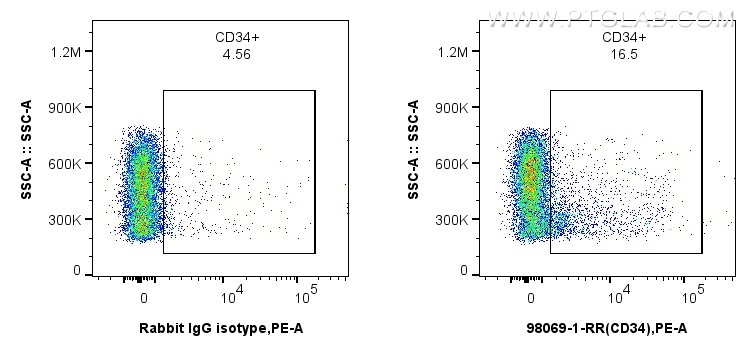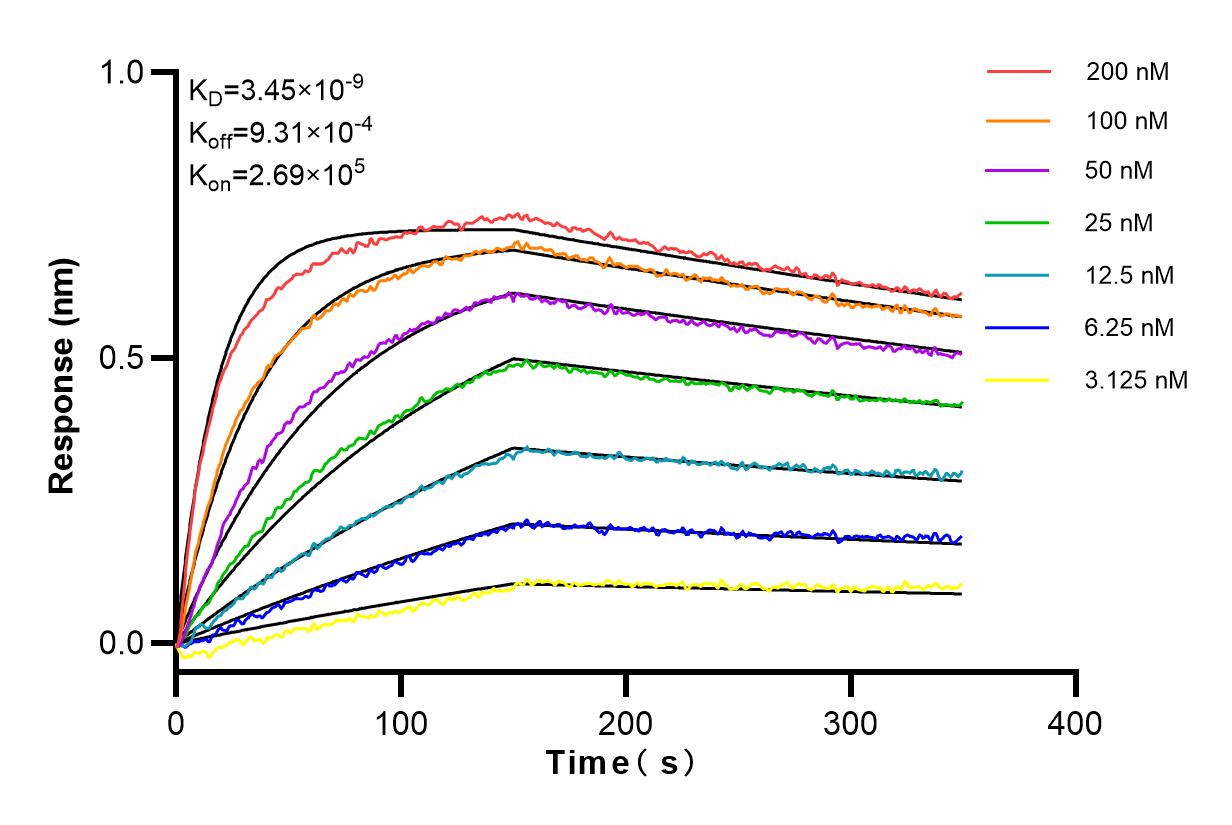Anti-Mouse CD34 Rabbit Recombinant Antibody
CD34 Uni-rAbTM Recombinant Antibody for FC
Host / Isotype
Rabbit / IgG
Reactivity
mouse
Applications
FC
Conjugate
Unconjugated
CloneNo.
240659B11
验证数据展示
经过测试的应用
| Positive FC detected in | C57BL/6 mouse bone marrow cells |
推荐稀释比
| Application | Dilution |
|---|---|
| This reagent has been tested for flow cytometric analysis. It is recommended that this reagent should be titrated in each testing system to obtain optimal results. | |
| Sample-dependent, Check data in validation data gallery. | |
产品信息
98069-1-RR targets CD34 in FC applications and shows reactivity with mouse samples.
| Tested Applications | FC Application Description |
| Tested Reactivity | mouse |
| Immunogen | Fusion Protein 种属同源性预测 |
| Host / Isotype | Rabbit / IgG |
| Class | Recombinant |
| Type | Antibody |
| Full Name | CD34 antigen |
| Synonyms | CD34 antigen, 240659B11 |
| Calculated Molecular Weight | 41 kDa |
| GenBank Accession Number | NM_133654 |
| Gene Symbol | CD34 |
| Gene ID (NCBI) | 12490 |
| Conjugate | Unconjugated |
| Form | Liquid |
| Purification Method | Protein A purfication |
| UNIPROT ID | Q64314 |
| Storage Buffer | PBS with 0.09% sodium azide, pH 7.3. |
| Storage Conditions | Store at 2 - 8°C. Stable for one year after shipment. |
背景介绍
CD34 is a 105- to 120-kDa glycophosphoprotein expressed on the majority of hematopoietic stem/progenitor cells, bone marrow stromal cells, capillary endothelial cells, embryonic fibroblasts, and some nerve tissue. CD34 is a commonly used marker for identifying human hematopoietic stem/progenitor cells and mediates cell adhesion and lymphocyte homing by binding L-selectin and E-selectin ligands. CD34 is also one of the best negative selection markers for characterizing and/or isolating human MSCs from bone marrow and other sources. Along with other positive selection markers (such as CD29, CD44, CD90, CD105 and CD166), negative selection markers (such as CD34 and CD45) are used for MSC identification.
实验方案
| Product Specific Protocols | |
|---|---|
| FC protocol for CD34 antibody 98069-1-RR | Download protocol |
| Standard Protocols | |
|---|---|
| Click here to view our Standard Protocols |


